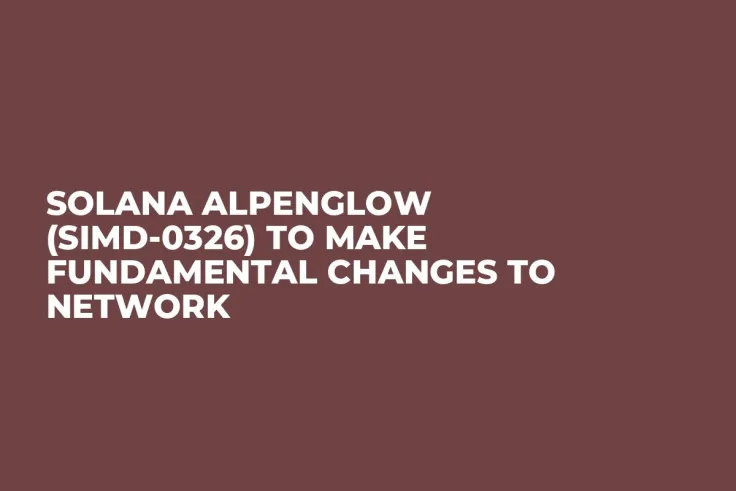
Disclaimer: The opinions expressed by our writers are their own and do not represent the views of U.Today. The financial and market information provided on U.Today is intended for informational purposes only. U.Today is not liable for any financial losses incurred while trading cryptocurrencies. Conduct your own research by contacting financial experts before making any investment decisions. We believe that all content is accurate as of the date of publication, but certain offers mentioned may no longer be available.
The governance process of Solana is currently on the verge of updating to Alpenglow (SIMD-0326), a significant consensus protocol overhaul. According to the proposal, block finality will be lowered from the current 12-8 seconds to approximately 150 milliseconds using a new system. At least two-thirds of Yes votes in relation to Yes plus No votes are needed for the proposal to pass, and voting is set for Epochs 840-842 (the network is currently in Epoch 834).
Alpenglow system introduction
The proof-of-history and TowerBFT systems from Solana are replaced by Alpenglow, a contemporary framework emphasizing fault tolerance, latency reduction and streamlined consensus logic. Votor, its main component, is a simple voting system that, depending on network conditions, completes blocks in one or two rounds.
By doing away with the excessive gossip traffic linked to TowerBFT, this method reduces bandwidth consumption and provides quicker block confirmation. Direct voting between validators will take place, and results will be certified by combining cryptographic proofs.
Eventually, Rotor, a complementary protocol, will take the place of Turbine for data distribution, however this will be introduced in a separate upgrade. The limitations of TowerBFT, which introduced high latency and lacked formal safety guarantees, are the driving force behind Alpenglow.
What does new system offer?
The new system offers better incentives for validators, reduced communication overhead and increased economic fairness, all of which are based on recent distributed systems research. Even in the event that 20% of validators engage in malevolent behavior and another 20% choose not to participate, the protocol can continue to function thanks to a 20+20 resilience model.
Off-chain vote aggregation will be used by validators in place of on-chain vote transactions, which will save fees and computational expenses. The new Validator Admission Ticket (VAT) is set at 1.6 SOL per epoch.


 Vladislav Sopov
Vladislav Sopov Dan Burgin
Dan Burgin